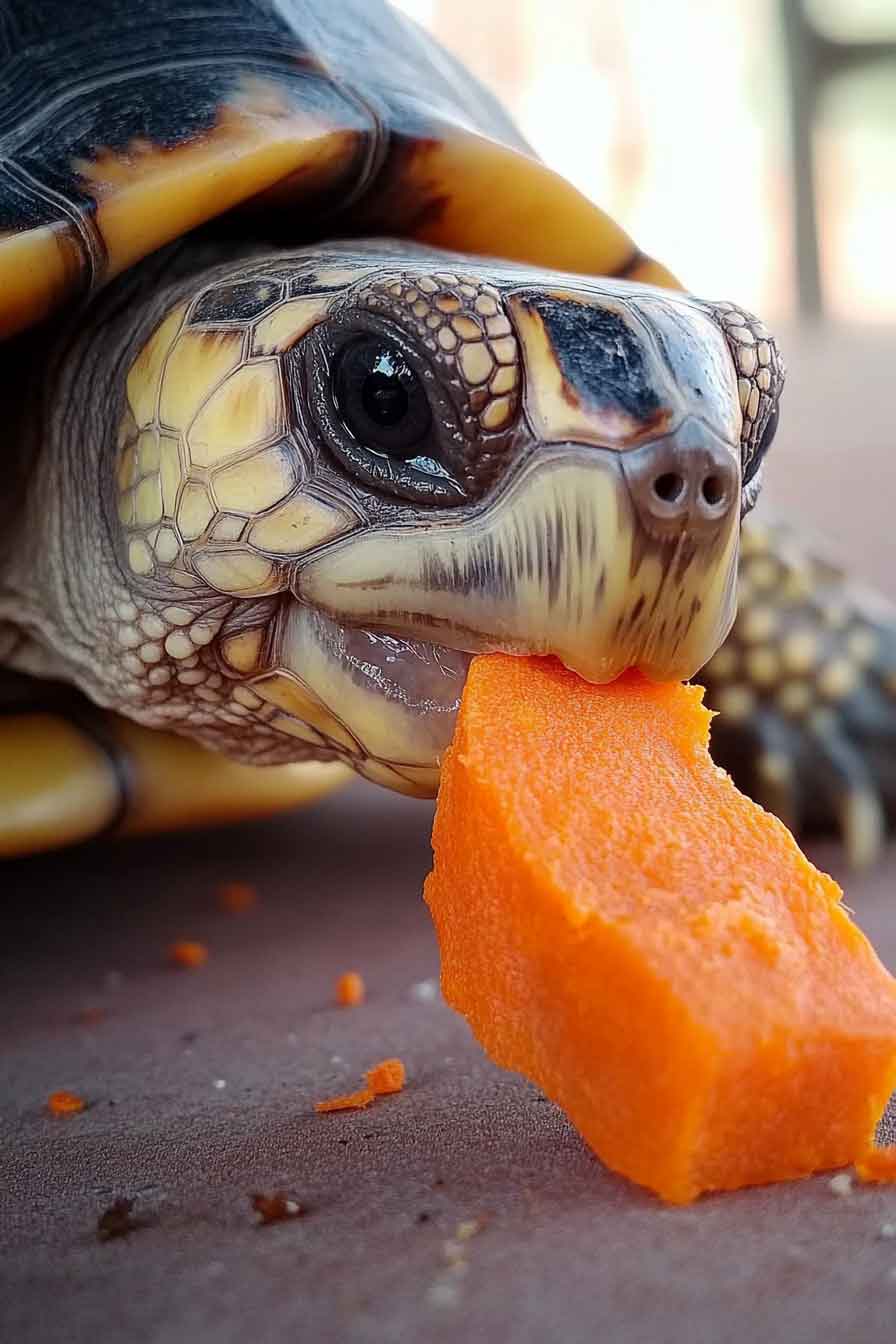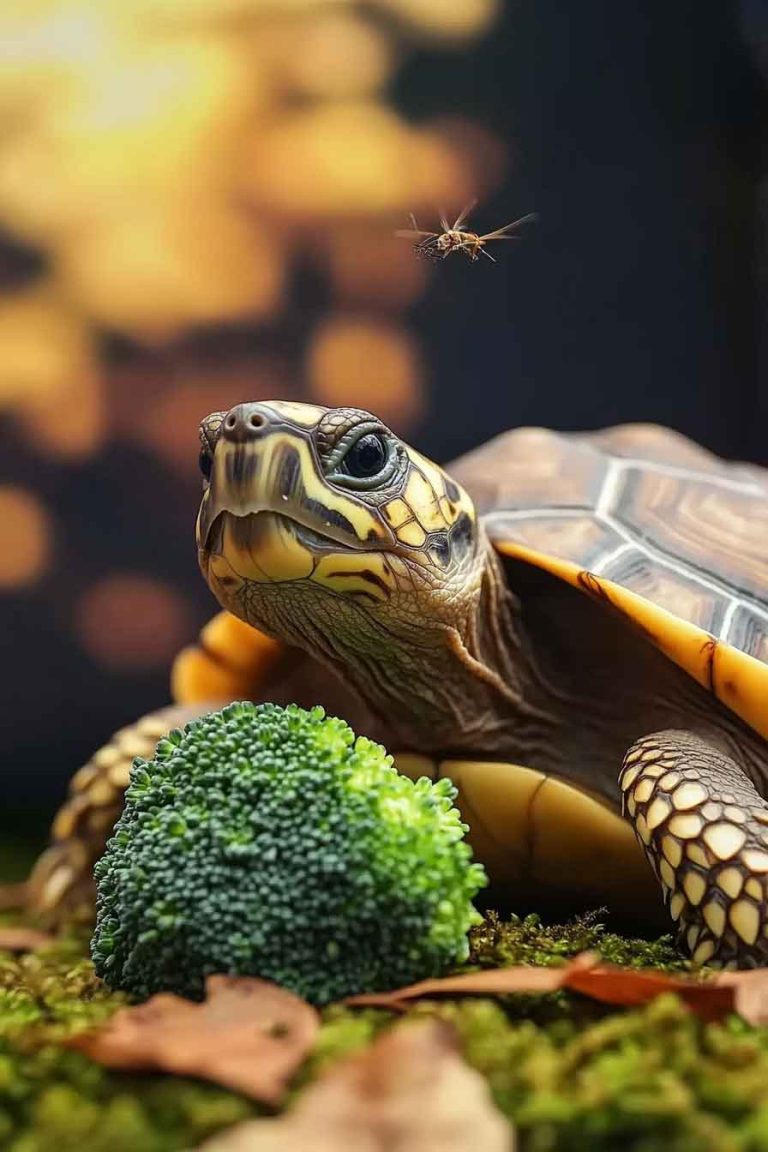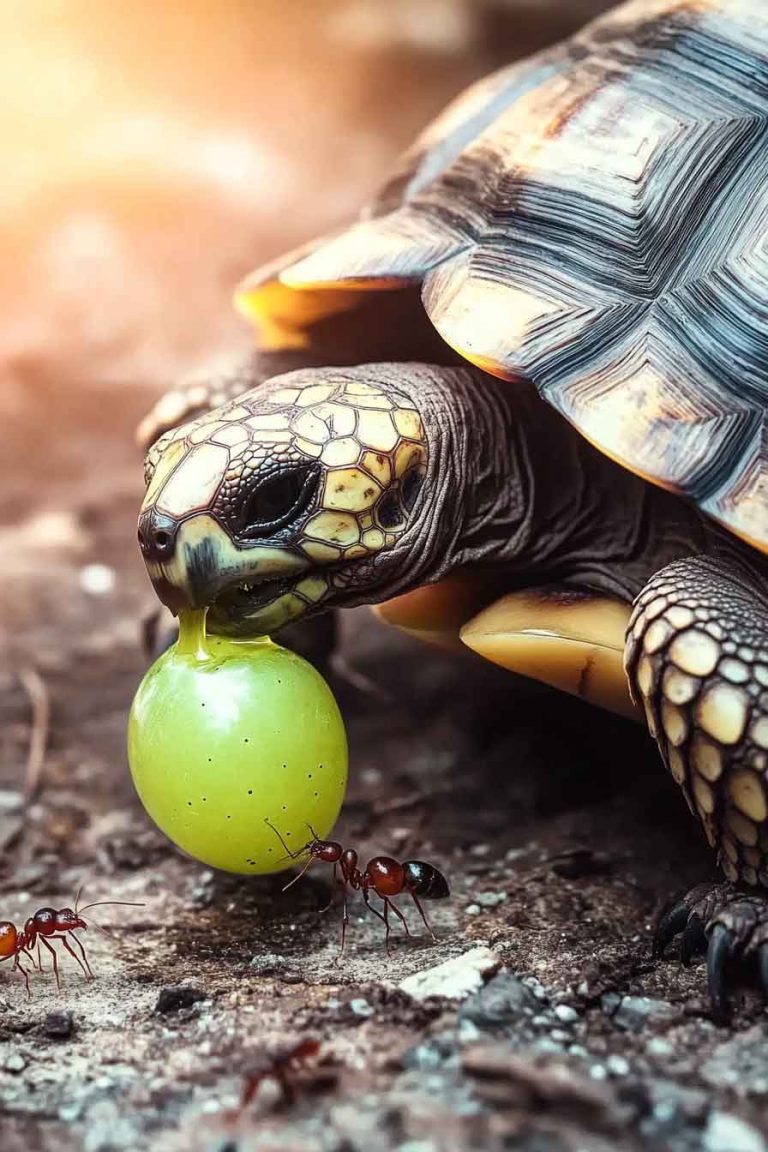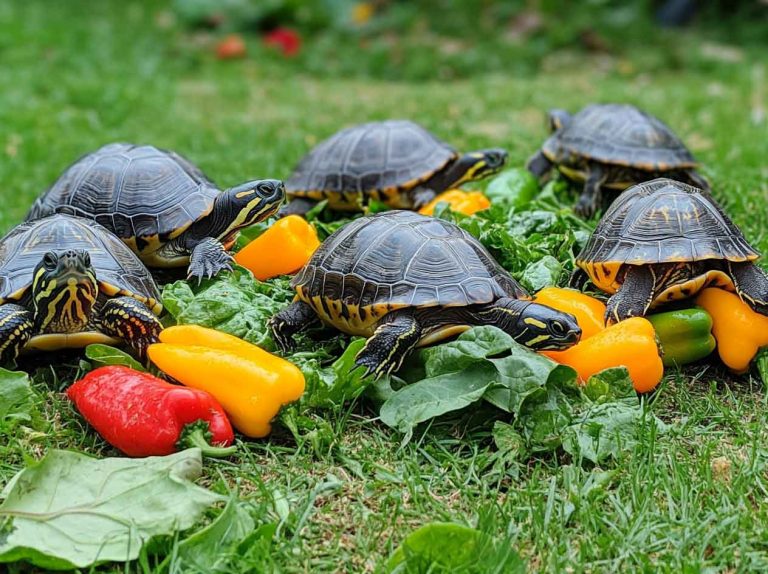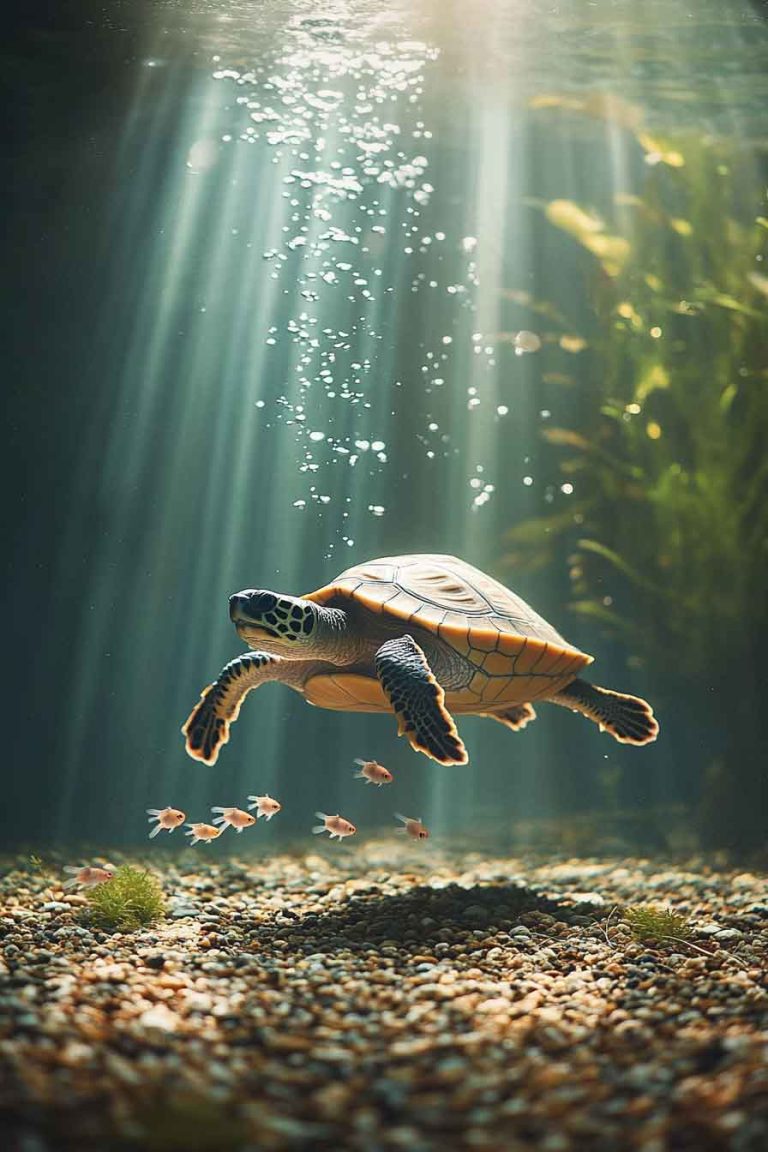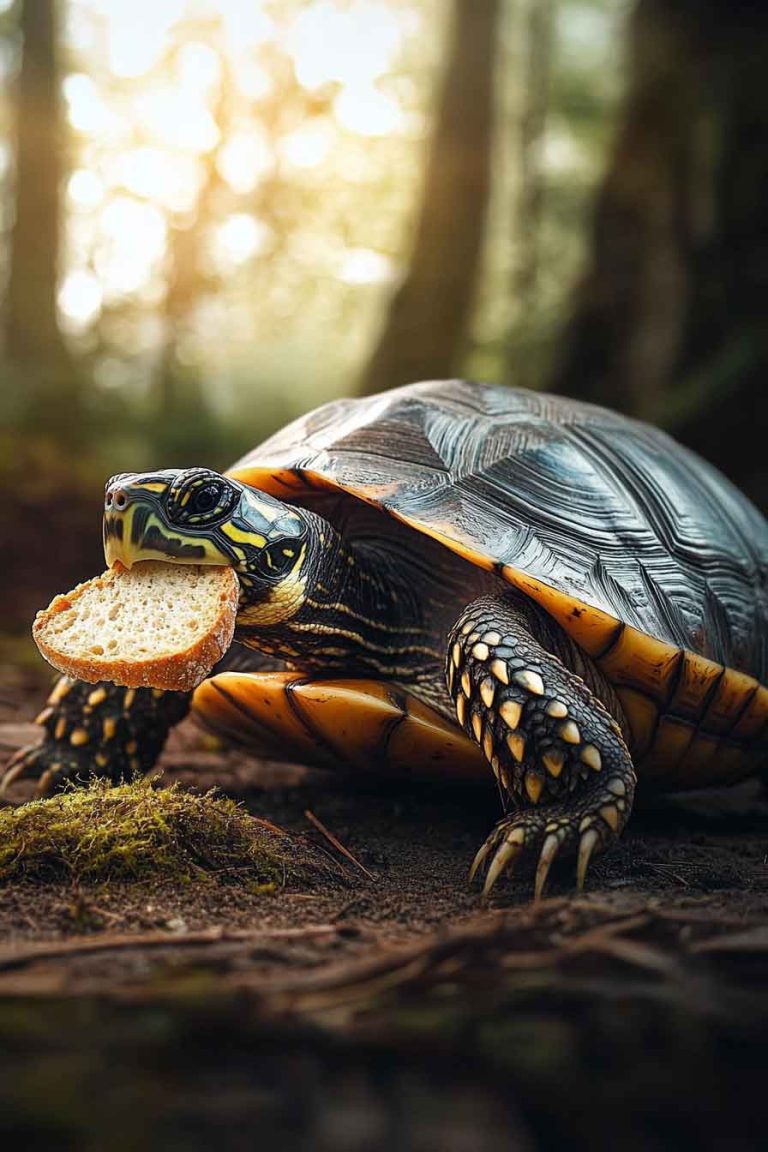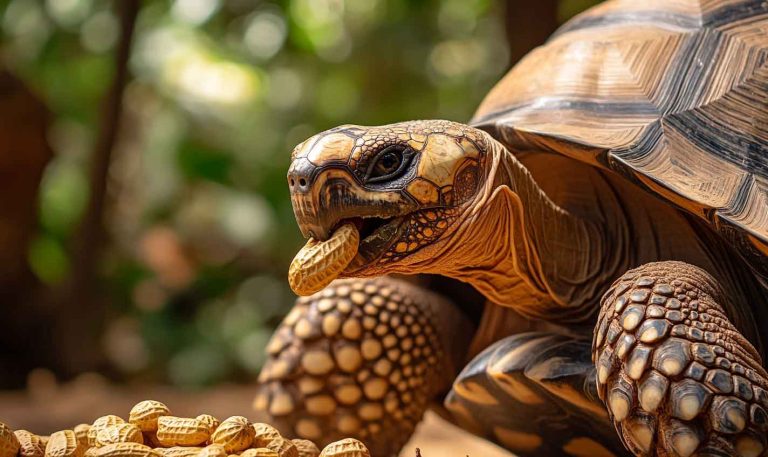Can Turtles Eat Carrots? What You Should Know
If you’re like me and have a beloved pet turtle, you’ve probably found yourself wondering what treats you can share with your shelled friend. I remember the first time I watched my turtle curiously approach a piece of carrot I’d dropped near their tank – it got me thinking about whether carrots are actually safe…
If you’re like me and have a beloved pet turtle, you’ve probably found yourself wondering what treats you can share with your shelled friend. I remember the first time I watched my turtle curiously approach a piece of carrot I’d dropped near their tank – it got me thinking about whether carrots are actually safe for turtles to eat.
So, can turtles eat carrots? The answer is yes – turtles can eat carrots, but with important limitations. Carrots are safe for turtles when given in moderation as an occasional treat. However, they shouldn’t be a daily staple in your turtle’s diet due to their high sugar content and potential to cause digestive issues if overfed.
In this article, I’m going to share everything I’ve learned about feeding carrots to turtles, including the benefits, risks, and proper ways to prepare them. Keep reading if you want to make informed decisions about your turtle’s diet.
Can You Feed Carrots To Your Pet Turtle?
The short answer is – yes, but sparingly. Since carrots are vegetables, many turtle owners automatically assume they’re perfectly safe to feed regularly. While carrots aren’t toxic like some other foods, they need to be given thoughtfully as part of a balanced diet.
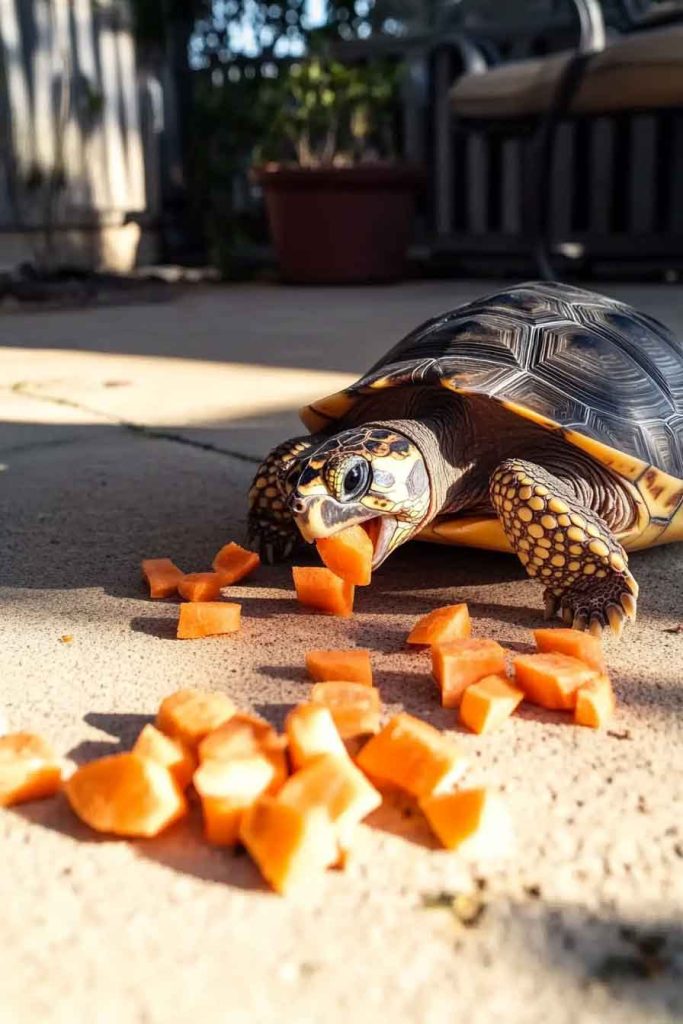
Turtles have specific dietary requirements that differ significantly from humans. Let me break down the nutritional content found in 100 grams of raw carrots to help you understand why moderation is key:
Carbohydrates: 9.6 g
Sugar: 4.7 g
Protein: 0.9 g
Calcium: 33 mg
Phosphorus: 35 mg
Vitamin A (Beta-carotene): 835 mcg
Vitamin C: 5.9 mg
Fiber: 2.8 g
Potassium: 320 mg
Magnesium: 12 mg
Iron: 0.3 mg
Looking at this nutritional profile, I can see why carrots need to be given carefully. The sugar content is relatively high for turtles, and the calcium to phosphorus ratio is slightly inverted (should ideally be 2:1 calcium to phosphorus for optimal turtle health).
However, carrots do offer some benefits. They’re rich in beta-carotene (which converts to Vitamin A), essential for maintaining healthy eyesight, immune function, and shell development in turtles.
Do Turtles Like Carrots?
From my experience and research, most turtles do enjoy carrots when they’re properly prepared. The natural sweetness and crunchy texture seem appealing to many turtle species. However, individual preferences can vary significantly between turtles.
I’ve noticed that some turtles immediately go for carrot pieces, while others need time to warm up to them. The key is introducing carrots gradually and observing your turtle’s response.
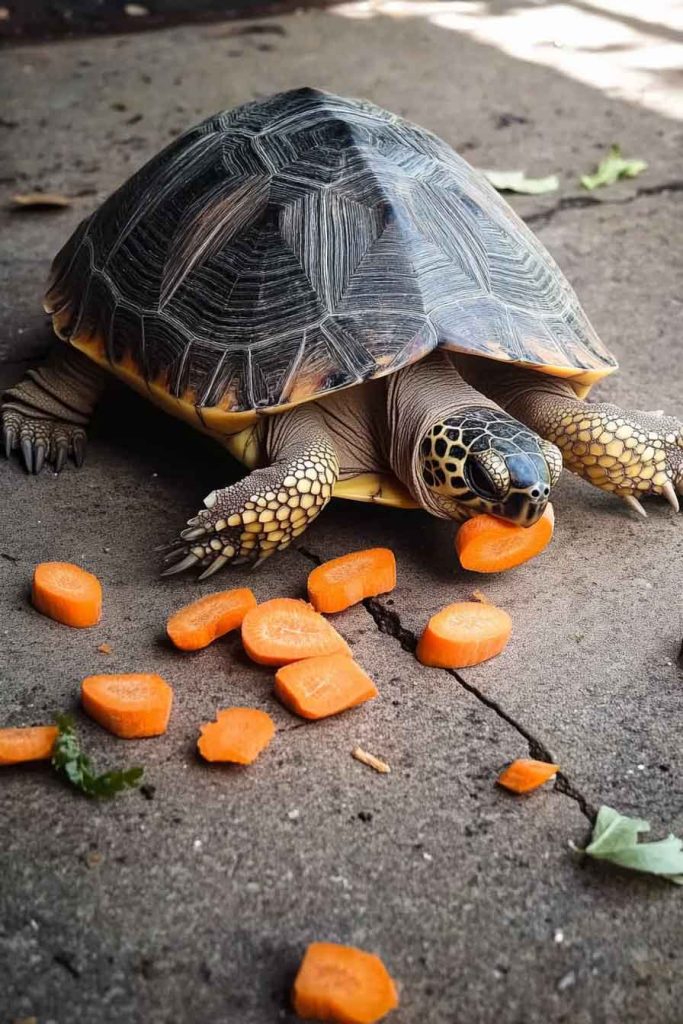
Health Benefits of Carrots for Turtles
When given appropriately, carrots can provide several health benefits for your turtle:
Vision Support
The high beta-carotene content in carrots converts to Vitamin A, which is crucial for maintaining healthy eyesight in turtles. Vitamin A deficiency can lead to swollen eyes, respiratory infections, and other serious health issues.
Immune System Boost
Vitamin A also plays a vital role in supporting your turtle’s immune system, helping them fight off infections and diseases more effectively.
Shell Health
The nutrients in carrots can contribute to healthy shell development and maintenance, though they shouldn’t be relied upon as the primary source of shell-supporting nutrients.
Digestive Variety
Adding occasional carrot pieces can provide beneficial dietary variety, which helps prevent boredom and encourages natural foraging behaviors.
Health Risks of Feeding Carrots to Turtles
Despite their benefits, carrots can pose certain risks if not given properly:
High Sugar Content
The 4.7 grams of sugar per 100 grams of carrots can be problematic for turtles if given too frequently. Turtles aren’t designed to process high amounts of sugar, which can lead to digestive upset and long-term health issues.
Calcium-Phosphorus Imbalance
Carrots contain slightly more phosphorus than calcium, which isn’t ideal for turtles. When given too frequently, this can contribute to calcium deficiency over time, potentially leading to Metabolic Bone Disease.
Digestive Issues
Too many carrots can cause diarrhea or other digestive problems in turtles, especially if they’re not used to eating them regularly.
Vitamin A Toxicity
While rare, feeding too many carrots (along with other Vitamin A-rich foods) could potentially lead to Vitamin A toxicity, causing liver problems and other health issues.
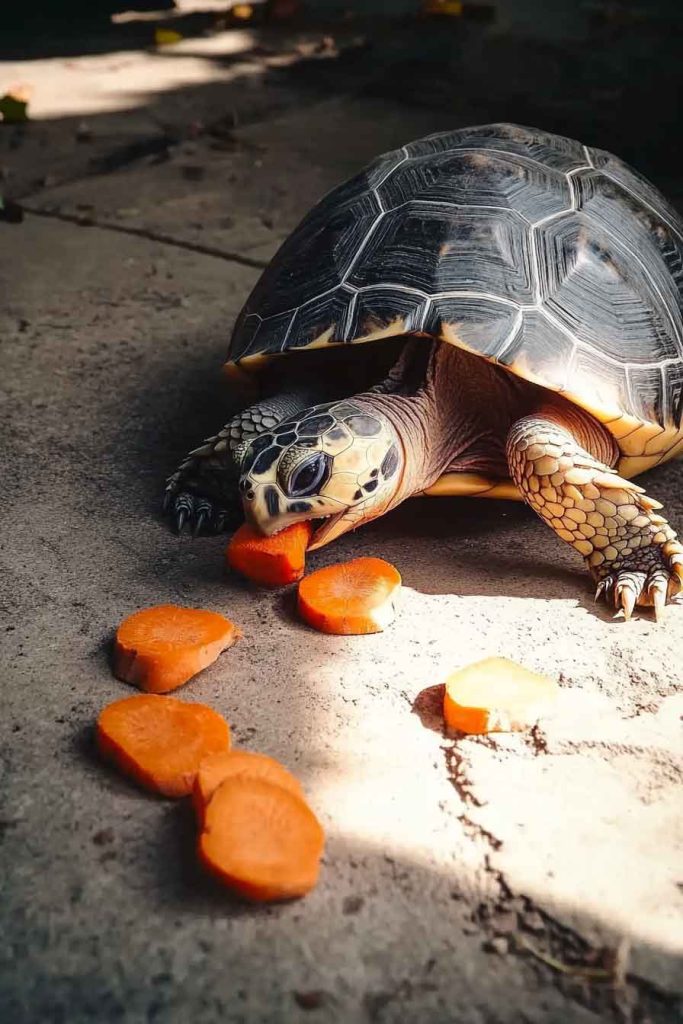
Can Turtles Eat Carrots Everyday?
No, turtles should not eat carrots everyday. This is one of the most important points I want to emphasize. While carrots aren’t toxic, daily consumption can lead to several problems:
The high sugar content makes daily carrot consumption inappropriate for turtles. Their digestive systems aren’t equipped to handle this much sugar on a regular basis, which can lead to digestive upset and potential long-term health complications.
Additionally, the calcium-phosphorus ratio in carrots means that daily consumption could contribute to nutritional imbalances over time. Your turtle needs a diet with a proper 2:1 calcium to phosphorus ratio for optimal health.
I recommend limiting carrot treats to 1-2 times per week at most, and only in small quantities. This allows your turtle to enjoy the benefits without risking their health.
Can Turtles Eat Carrots in Water?
Yes, turtles can eat carrots in water, and for aquatic turtle species, this is actually the preferred method. Many aquatic turtles, such as Red-Eared Sliders, naturally eat in water and may have difficulty consuming food on land.
When feeding carrots to aquatic turtles in water, I’ve learned a few important tips:
Preparation: Cut carrots into appropriate-sized pieces that won’t pose a choking hazard. For adult turtles, pieces about the size of their head work well.
Water Quality: Be prepared to remove any uneaten carrot pieces within a few hours to prevent water contamination and bacterial growth.
Observation: Watch your turtle eat to ensure they’re handling the carrots well and not struggling with the pieces.
Cleaning: Clean the water more frequently when feeding vegetables like carrots, as they can break down and affect water quality more quickly than commercial turtle foods.
How Much Carrots Should Turtles Eat?
The amount of carrots you should give your turtle depends on their size and species, but here are my general guidelines:
For Adult Turtles: 1-2 small pieces (about the size of your turtle’s head) once or twice per week maximum.
For Juvenile Turtles: Even smaller portions, perhaps half the size recommended for adults, and less frequently.
For Baby Turtles: I generally don’t recommend giving carrots to very young turtles, as their digestive systems are still developing and they need more consistent, species-appropriate nutrition.
Remember, treats like carrots should never make up more than 10% of your turtle’s total diet. The bulk of their nutrition should come from high-quality commercial turtle food appropriate for their species, along with other approved vegetables and proteins.
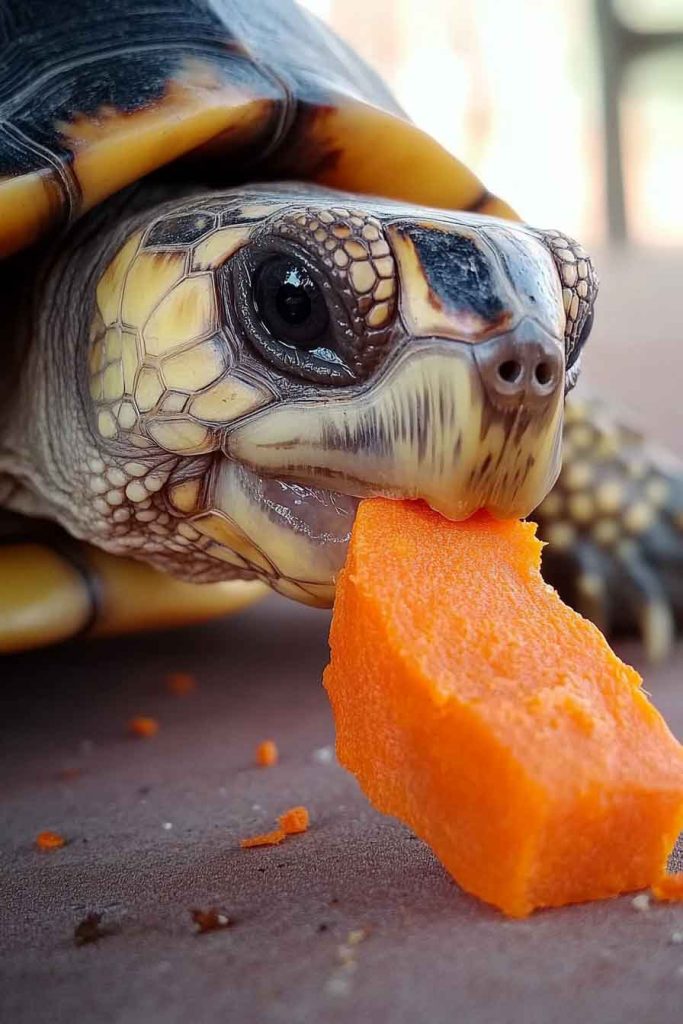
Can You Feed Carrots to Baby Turtles?
I generally advise against feeding carrots to baby turtles. Young turtles have very specific nutritional needs for proper growth and development. Their digestive systems are also more sensitive and less capable of handling foods outside their species-appropriate diet.
Baby turtles should focus on:
- High-quality commercial turtle food designed for their species and age
- Appropriate protein sources
- Properly balanced calcium and phosphorus ratios
Once your turtle reaches juvenile or adult size (usually after their first year, depending on species), you can consider introducing small amounts of carrots as occasional treats.
Proper Way to Prepare Carrots for Turtles
If you decide to give your turtle carrots, proper preparation is essential:
Washing
Always thoroughly wash carrots before feeding them to your turtle to remove any pesticides or dirt.
Cutting
Cut carrots into appropriately sized pieces. The pieces should be small enough that your turtle won’t choke but large enough that they can grasp and bite them.
Raw vs. Cooked
I recommend feeding raw carrots rather than cooked ones. Raw carrots retain more of their nutritional value and provide better texture for your turtle’s jaw exercise.
Organic When Possible
Choose organic carrots when available to minimize exposure to pesticides and chemicals.
Species-Specific Considerations
Box Turtles and Carrots
Box turtles are omnivores with more varied diets, so they can generally handle small amounts of carrots better than some other species. However, the same moderation guidelines apply.
Red-Eared Slider Turtles and Carrots
Red-Eared Sliders can eat carrots in water, but they should be given sparingly. These turtles benefit more from leafy greens and aquatic plants as their primary vegetable sources.
Painted Turtles and Carrots
Painted turtles can occasionally eat carrots, but like other aquatic species, they prefer to eat in water and benefit more from aquatic vegetation in their regular diet.
Alternative Healthy Vegetables for Turtles
While carrots can be an occasional treat, there are many other vegetables that are better suited for regular feeding:
Leafy Greens: Collard greens, mustard greens, dandelion greens, and kale (in moderation) are excellent choices.
Squash: Butternut squash and other winter squashes provide good nutrition with better calcium-phosphorus ratios.
Bell Peppers: These provide Vitamin C and are generally well-tolerated by most turtle species.
Aquatic Plants: For aquatic turtles, plants like water hyacinth, water lettuce, and duckweed are natural and nutritious options.
Signs Your Turtle May Have Eaten Too Many Carrots
Watch for these warning signs that may indicate your turtle has consumed too many carrots or other sugary foods:
- Diarrhea or unusually soft stools
- Loss of appetite for regular food
- Lethargy or unusual behavior
- Changes in shell appearance or texture (over time)
- Digestive upset or vomiting
If you notice any of these signs, discontinue feeding carrots and consult with a reptile veterinarian if symptoms persist.
Frequently Asked Questions (FAQs)
Can Box Turtles Eat Carrots?
Yes, box turtles can eat small amounts of carrots occasionally. As omnivores, they have more dietary flexibility, but carrots should still be limited to 1-2 times per week in small portions.
Can Red-Eared Slider Turtles Eat Carrots?
Red-Eared Sliders can eat carrots in water occasionally, but they shouldn’t be a regular part of their diet. Focus on leafy greens and aquatic plants for their vegetable needs.
Can Painted Turtles Eat Carrots?
Painted turtles can occasionally eat small pieces of carrots in water, but like other aquatic species, they benefit more from aquatic vegetation and properly balanced commercial foods.
Are Baby Carrots Different from Regular Carrots for Turtles?
Baby carrots are just regular carrots cut and shaped into smaller pieces. They have the same nutritional profile and should be treated the same way – as occasional treats only.
Can Turtles Eat Carrot Tops?
Carrot tops (the green leafy parts) are actually more nutritious for turtles than the carrot roots themselves. They have a better calcium-phosphorus ratio and less sugar. However, they should still be given in moderation and thoroughly washed.
Conclusion
Carrots can be a safe and enjoyable occasional treat for your turtle when given properly. The key is moderation – never everyday feeding, and always in small, appropriate portions. While carrots offer some nutritional benefits like Vitamin A, they shouldn’t replace the core components of your turtle’s species-appropriate diet.
Remember that whether your turtle eats on land or in water, the same guidelines apply: small portions, infrequent feeding, and always as part of a balanced diet. By following these guidelines, you can safely share this orange treat with your shelled companion while keeping their health as your top priority.
I hope this comprehensive guide has helped you understand the relationship between turtles and carrots. Always consult with a reptile veterinarian if you have specific concerns about your turtle’s diet or health.

